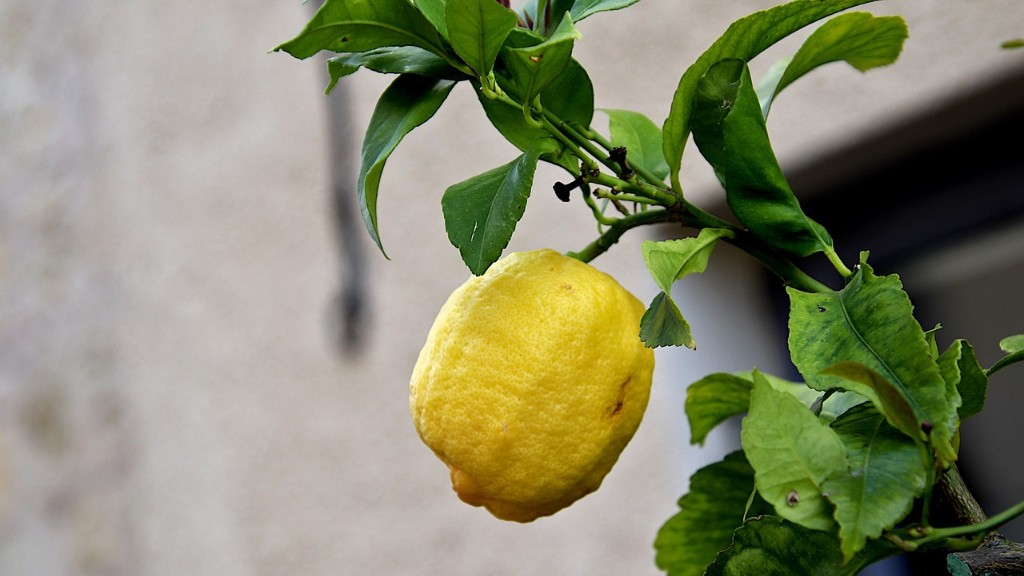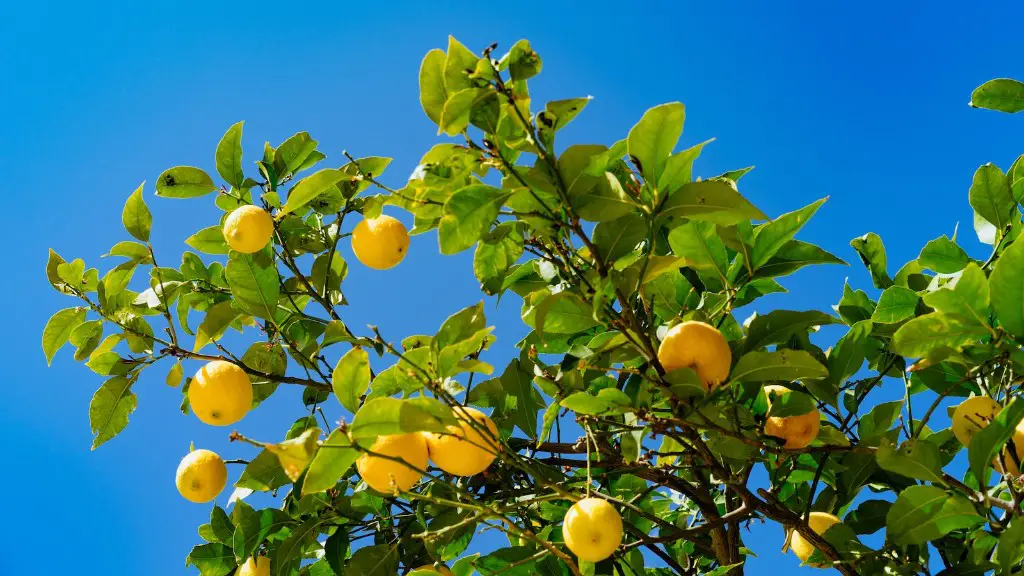Is peeing on a lemon tree good for it? The answer to this question is not clear-cut. On the one hand, urine is high in nitrogen, phosphorus, and potassium which could potentially benefit a lemon tree, while on the other hand, it can also cause damage. To get to the bottom of the issue, let’s look closer at the pros and cons of peeing on a lemon tree.
Benefits of Peeing on Lemon Tree
Urine is a natural fertilizer, and is high in nitrogen, phosphorus and potassium, which are all beneficial for lemon trees. Nitrogen helps to strengthen the plant’s stems, as well as promoting green leaf growth. Phosphorus assists with root development and flower and seed production, while potassium helps with nutrient absorption and water circulation within the tree. All of these components can help a lemon tree to thrive and produce better fruit.
Compared to chemical fertilizers, natural fertilizers are safer to use and are more sustainable. Not only are they better for the environment, but they contain many other trace elements, such as zinc and iron, which have been shown to fight off pests and diseases, thus protecting the tree.
Finally, washing the soil around the base of the tree with urine can help to condition the soil, making it easier for water and oxygen to travel to the roots, and allowing beneficial bacteria to thrive.
Drawbacks of Peeing on Lemon Tree
Despite the benefits, there can be some negatives to peeing on a lemon tree. For example, urine contains urea, which can over-fertilize the soil and make the lemon tree produce too much foliage and not enough fruit.
Urine also contains salts and other minerals, which can accumulate in the soil and damage the root systems of the tree. If left uncorrected, these substances can not only inhibit nutrient uptake and water retention, but can also lead to root rot.
Finally, urine has a strong odor which can attract animals and pests, and potentially cause harm to the lemon tree.
Things to Be Aware Of When Peeing On Lemon Tree
If you are thinking of peeing on a lemon tree, there are several things you should be aware of. Firstly, urine should only be applied directly to the soil, and should not come into contact with the tree’s foliage. Secondly, it should only be used in small amounts, and the best time to do so is after a heavy rain, when the ground has already been saturated with water.
It’s also important to use only your own urine, as dog or cat urine can contain high levels of toxics which can be harmful to plants. Finally, it’s also wise to check with your local gardening store to get an idea of what fertilizers to use and what quantity to use them in.
How To Apply Urine To A Lemon Tree
Once you have the urine and you’re ready to use it, the first step is to dilute the urine. For every two liters of urine, mix with two liters of water before applying. This dilution helps to reduce the strength of the urine so that it does not harm the lemon tree.
Once the urine is ready, it can be applied to the soil around the tree. Simply pour it around the base of the tree, taking care not to splash any onto the plant itself, and allow it to seep into the soil. Allow the excess to run off, then leave the tree to stand for a few hours.
Effectiveness of Peeing On Lemon Tree
The effectiveness of urine depends largely on when and how it is used. If applied in small amounts and mixed with water before being used, it can provide all the necessary nutrients to help the lemon tree to grow and thrive. However, if used in large amounts, or if the urine is not diluted, then it can actually cause damage to the plant.
It is also important to note that urine is a short-term fertilizer and is not a substitute for regular feeding. Over an extended period of time, the nitrogen content of urine can decrease, leaving the soil depleted and unable to support the tree. For this reason, it’s important to continue to supplement the soil with other fertilizers, such as fertilizers for citrus.
Conclusion
In conclusion, peeing on a lemon tree can have its benefits, as it is naturally high in nitrogen, phosphorus and potassium which can provide the tree with much needed nourishment. However, it is important to be aware of the drawbacks of using urine, such as the potential accumulation of salts, the risk of over-fertilizing and the potential for animal and pest infestation. As long as it is used in small amounts and mixed with water before applying, it can be an effective way to provide nourishment and health to your lemon tree.



